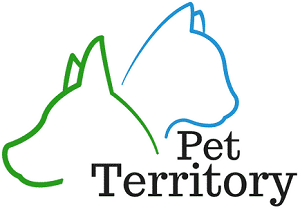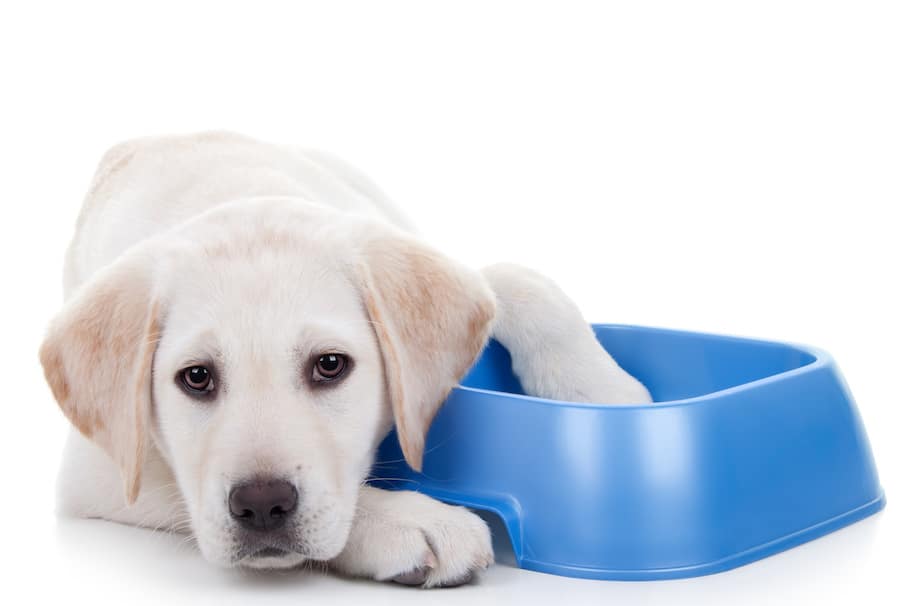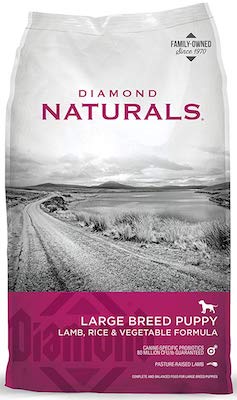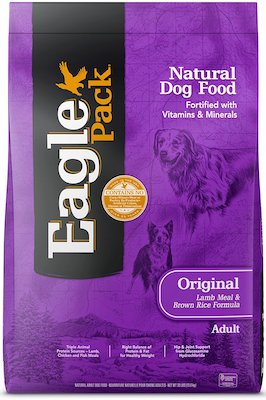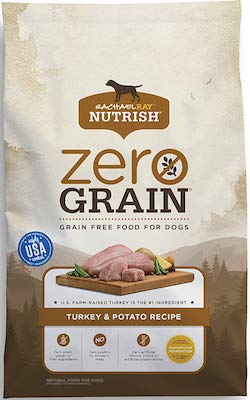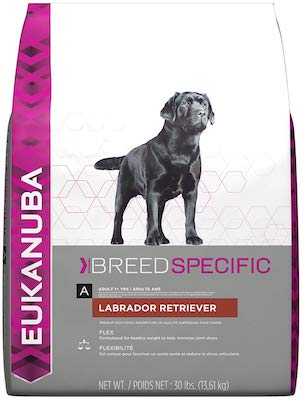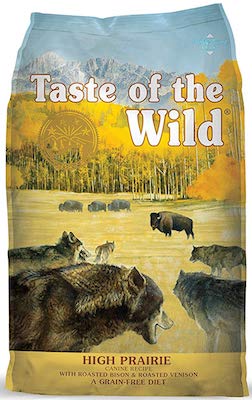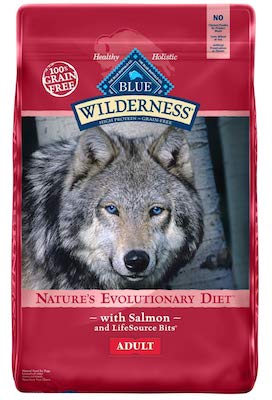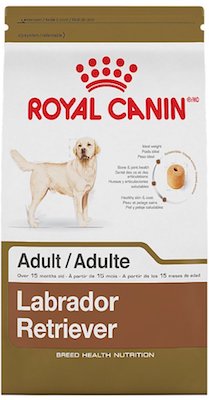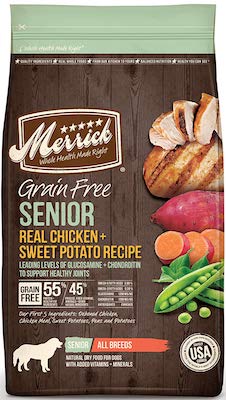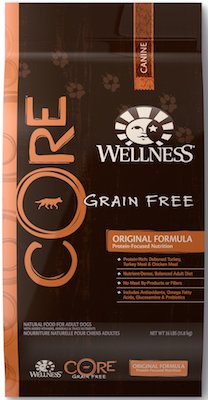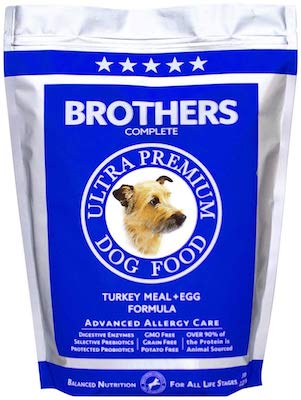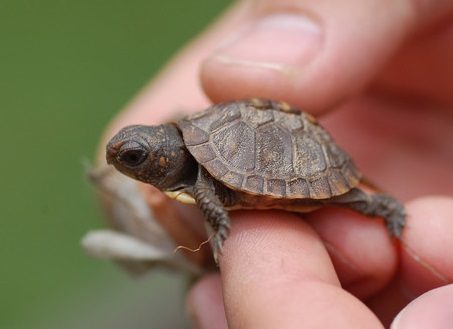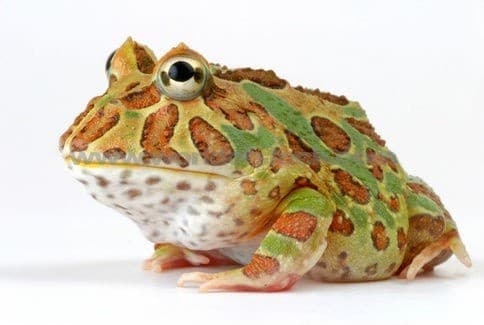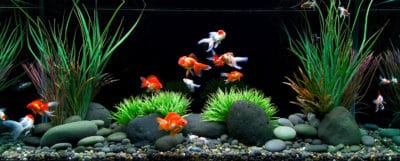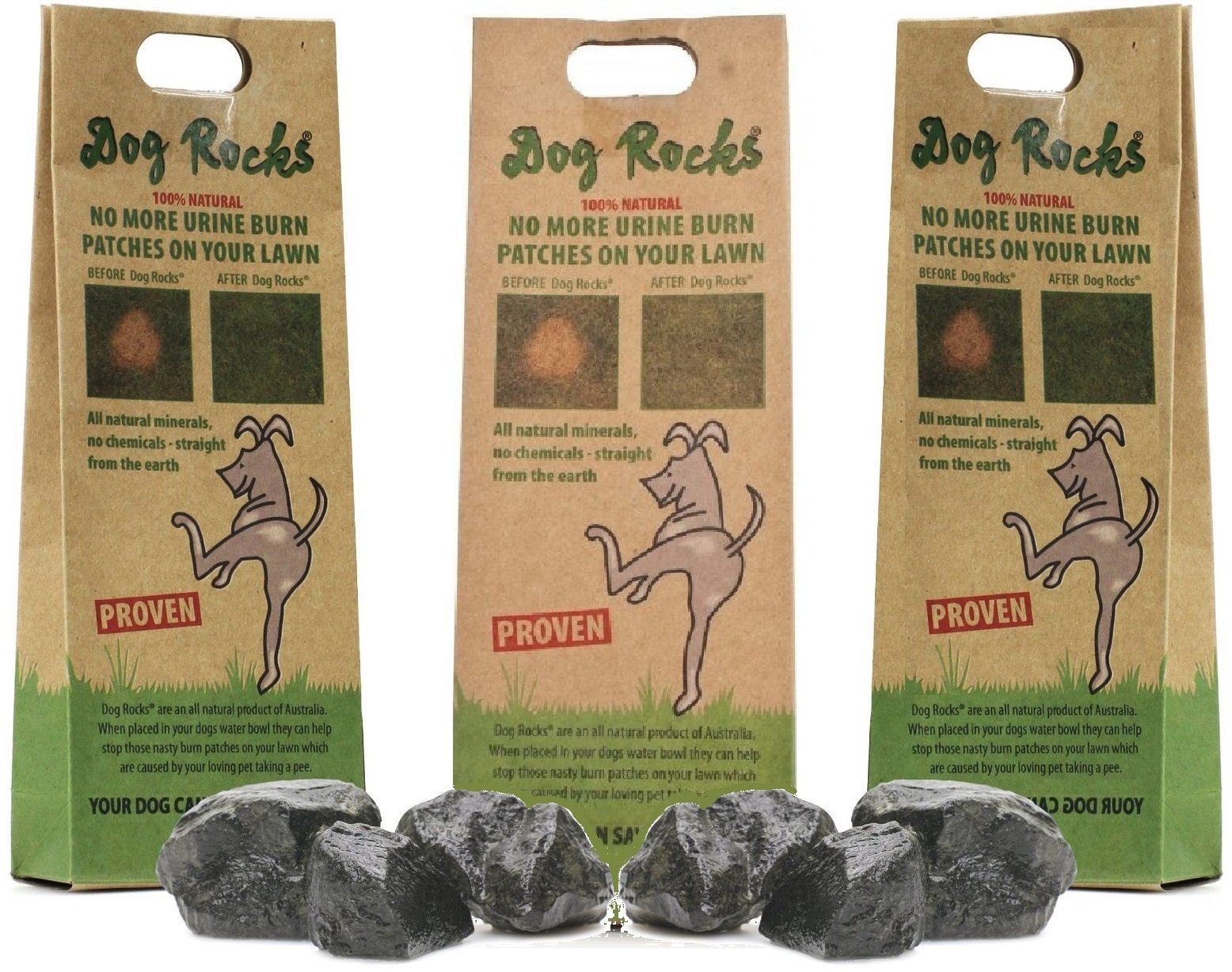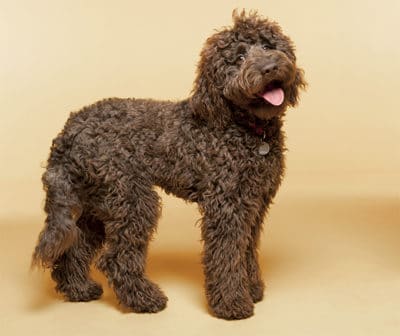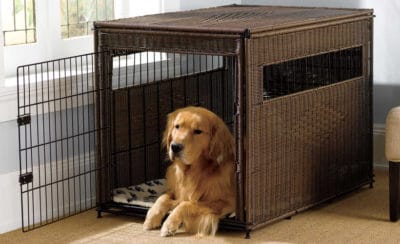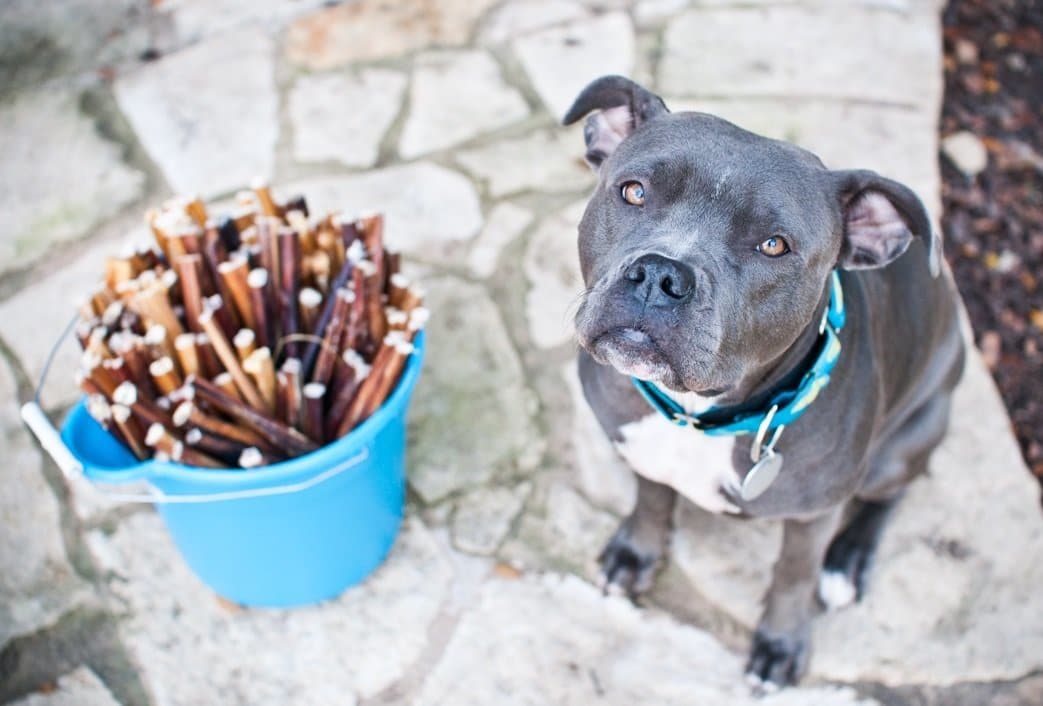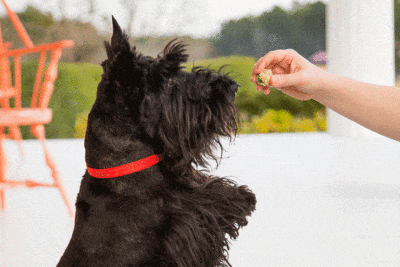Is your furry friend a Labrador? If so, you’re likely familiar with high-energy fun and friendliness. Taking care of your pooch should be one of your highest priorities and that means choosing the right food. Different types of dogs have different needs. Do you know what’s best for your dog? The good news is there are many types and brands of dog food to choose from, so you can find the best dog food for labs with just a little research.
To make things even easier, we’ve created this top-10 list. Keep reading to learn more about the best dog food for your lab.
Comparison Table: Best Dog Food for Labrador Retrievers
If you want an easy-to-reference guide, check out the table below. It contains all of our picks for the best foods for your labs. We’ve ordered them based on price ascending- keep in mind costs can fluctuate. We’ve also given them a consumer rating based on online reviews.
You can find these same options for your labs listed in our product lineup below.
The table is mobile responsive, you might have to expand columns to view all the information we’ve gathered.
| Image | Name | Formula | Ingredients | Cost | Rating |
|---|---|---|---|---|---|
 | Diamon Naturals Large Breed Puppy | -Puppy | -Lamb -White Rice -Peas -Barley -Egg -Pumpkin | ||
 | Eagle Pack Original Formula | -Adult | -Lamb -Brown Rice -Barley -Chicken Meal -Brewers Yeast -Vitamins | ||
 | Rachel Ray Nutrish Zero Grain | -Grain Free | -Turkey -Chicken Meal -Peas -Potatoes -Beef Meal -Fish Meal | ||
 | Eukanuba Breed Specific Labrador Retriever | -Breed Specific | -Chicken -Corn Meal -Barley -Beet -Fish Meal -Egg | ||
 | Taste of the Wild: High Prarie | -Grain Free | -Buffalo -Lamb -Beef -Peas -Sweet Potatoes -Egg | ||
 | Blue Wilderness with Salmon | -Grain Free | -Salmon -Chicken Meal -Peas -Tomato -Sweet Potato | ||
 | Royal Canin Labrador Retriever | -Breed Specific | -Chicken -Brown Rice -Pork Meal -Beet Pulp -Wheat Gluten -Fish Oil | ||
 | Merrick Grain Free Senior Formula | -Grain Free -Senior | -Chicken -Sweet Potatoes -Peas -Potatoes -Salmon Meal -Apples | ||
 | Wellness CORE Original Formula | -Grain Free | -Turkey -Peas -Potatoes -Apples -Blueberries -Kale | ||
 | Brothers Complete Turkey Meal Formula | -Grain Free -Allergy Formula | -Turkey Meal -Eggs -Peas -Pumpkin -Alfalfa -Chicken Meal/Liver |
The 10 Best Dog Food for Labs Options in 2021
What is the best dog food for labs?
Now that you know a little more about choosing the right food for your specific dog, let’s look at the top ten dog foods you can choose from. We’ve got everything from the best dog food for labs with allergies, to the best dog food for lab puppies.
1. Diamond Naturals Large Breed PuppyBest Dog Food for Lab Puppies
- Cost- $1.13/pound
- Formula Type- Puppy
- Proteins- Lamb
- Other Ingredients- Peas, Egg, Tomato, Pumpkin, Blueberry, Oranges, Spinach
If you’re looking for a balance between great nutrition and budget-friendly, Diamond Naturals is a good place to start. Diamond Naturals Large Breed Puppy Formula gives your lab has everything they need, including protein, vitamins, minerals, fruits, and vegetables. If you’re looking for something home-grown, this dog food is made in the USA, too. It’s our pick for best dog food for lab puppies.
2. Eagle Pack Natural Dry Dog FoodBest Dry Dog Food for Labs
- Cost- $1.50/pound
- Formula Type- Adult
- Proteins- Lamb, Chicken Meal
- Other Ingredients- Brown Rice, Barley, Brewer’s Yeast, Tomato, Vitamins
This lamb and rice dog food is specifically formulated for adult dogs. Brown rice replaces corn and wheat, and lamb provides a great alternative to chicken. This dog food offers a great, all-natural dry food option for your lab.
3. Rachael Ray Nutrish Zero GrainBest Dog Food for Labs for the Money
- Cost- $1.54/pound
- Formula Type- Grain Free
- Proteins- Turkey, Chicken Meal, Beef Meal, Fish Meal
- Other Ingredients- Peas, Potatoes, Beets, Flaxseed
Here’s another grain-free option if you’re looking to take grains completely out of your dog’s diet. This dog food has some special ingredients though-salmon and sweet potato. Grain and poultry allergies won’t be an issue here, and salmon is the first ingredient.
4. Eukanuba Breed Specific Labrador RetrieverBest Dog Food for Labs
- Cost- $1.67/pound
- Formula Type- Breed Specific
- Proteins- Chicken, Fish Meal, Egg
- Other Ingredients- Corn Meal, Barley, Beet
If you’re looking for a lab-specific adult dog food, Eukanuba should be on your list. This dog food goes through more than 100 quality tests to make sure it’s the best of the best. You’ll get high-quality protein and their special 3D DentaDefense system, but this food also contains beet pup which some manufacturers claim to be dangerous.
5. Taste of the Wild High Prairie FormulaBest Dog Food for Hunting Labs
- Cost- $1.78/pound
- Formula Type- Grain-Free
- Proteins- Buffalo, Lamb, Bison, Beef, Chicken
- Other Ingredients- Peas, Sweet Peas, Potatoes, Tomato, Sweet Potatoes, Egg
Grain-free and packed with protein, Taste of the Wild dog food offers the best dog food for hunting labs. It’s also ideal for dogs with grain allergies, thanks to the grain-free aspect. This dog food is on the pricier side, but it’s worth the cost to get your dog the nutrition he needs.
6. Blue WildernessBest Dog Food Brand for Labs
- Cost- $2.08/pound
- Formula Type- Grain Free
- Proteins- Salmon, Chicken Meal
- Other Ingredients- Peas, Tomato, Potato, Sweet Potato, Carrots
Blue Wilderness puts your dog first by keeping real meat as the first ingredient. Their High Protein Grain-Free Adult Dry Dog Food provides protein through fish meal, chicken meal, and chicken. Omega 3 and 6 Fatty Acids are included, too, to keep your pet’s coat and skin in good health.
Note that while there are many benefits to this dog food, some dogs are sensitive to chicken meal.
7. Royal Canin Breed Health Nutrition Labrador Retriever AdultBest Health Food and Best Weight Loss Dog Food for Labs
- Cost- $2.20/pound
- Formula Type- Breed Specific
- Proteins- Chicken, Pork Meal
- Other Ingredients- Brown Rice, Corn Meal, Beet, Wheat Gluten, Fish Oil
Royal Canin also offers a lab-specific dry dog food. Their formula aims to support mobility and healthy joints and skin. Your lab’s bone structure, coat, and more have been taken into consideration, resulting in a formula that’s perfect for your lab.
8. Merrick Grain Free Senior Dry Dog FoodBest Dog Food for Older Labs
- Cost- $2.40/pound
- Formula Type- Senior, Grain-Free
- Proteins- Chicken, Salmon Meal
- Other Ingredients- Sweet Potatoes, Peas, Potatoes, Apples, Blueberries
Packed with vitamins, minerals, and protein, Merrick Grain Free dog food provides wholesome nutrition for your lab. It contains only the best ingredients, none of which come from China. This dog food does contain alfalfa, which isn’t common in dog food, so you may want to do some research into the benefits or downsides of that ingredient.
9. Wellness CORE Grain FreeBest Dog Food for Labs with Sensitive Stomachs
- Cost- $2.50/pound
- Formula Type- Grain-Free
- Proteins- Turkey, Turkey & Chicken Meal
- Other Ingredients- Peas, Potatoes, Tomato, Broccoli, Carrots, Apples, Blueberries, Kale
Wellness CORE dog food offers high protein content and fewer carbohydrates. This additional protein will help keep your active lab going strong. This dog food is grain-free, so allergies and digestive issues related to grain won’t be a concern.
10. Brothers Complete Turkey Meal and Egg Advanced Allergy FormulaBest Dog Food for Labs with Allergies
- Cost- $3.08/pound
- Formula Type- Grain-Free, Allergy Care
- Proteins- Turkey Meal, Chicken Liver, Eggs
- Other Ingredients- Peas, Pumpkin, Alfalfa, Carrots, Flaxseed
If your lab is prone to allergies, Brothers Complete offers a great allergy formula dog food. It’s free of grains, potatoes, and GMOs. And, the proteins used are specifically the kind your dog needs, not the kind people need.
Things to Consider when Choosing the Best Dog Food for Labs
Your dog’s breed should be taken into consideration when choosing dog food, but it’s not the only important thing. You need to consider your dog’s age and weight, too.
Ingredients
Great dog food will include a proper balance of fruits, vegetables, meat, and whole grains. To make sure your pet is getting the best food possible, look for the “complete and balanced” designation from the Association of American Feed Control Officials (AAFCO).
Weight
Weight is an important factor, too. To help your lab maintain a healthy weight, choose food that offers a balanced diet.
Puppies
The best dog food for lab puppies isn’t the same as the best food for lab adults. Different aged dogs have different nutritional needs, so keep that in mind when shopping.
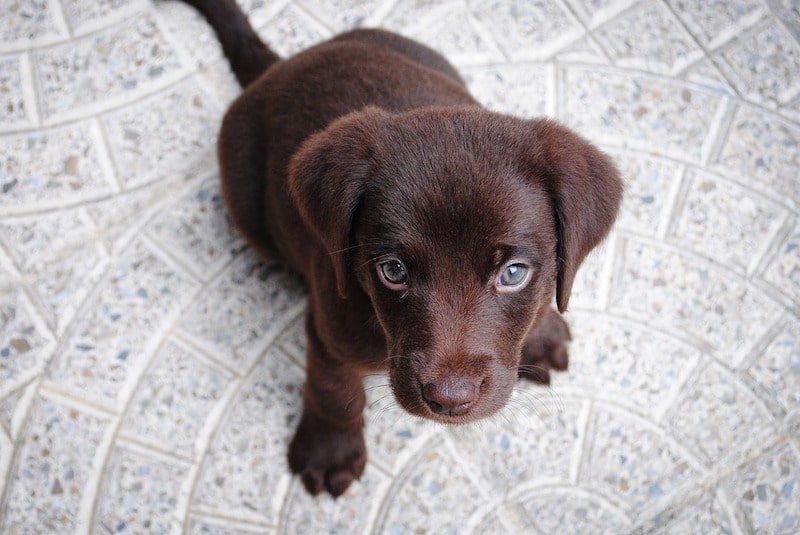
Nutrition and Sensitivity
It’s possible your lab has allergies to certain grains. In this case, make sure you choose food that avoids the ingredients your dog is allergic to. If you have any doubt as to the nutritional value of certain dog food, or you’d like to learn more about it, you can always contact the manufacturer. If they really care about your dog they’ll be happy to answer your questions.
Keep in mind there are different types of dog food: dry and wet. One may meet your pet’s needs better than the other, so the best dry dog food for labs, in general, may not be the best food for your lab. Wet food is especially helpful if you have a picky eater on your hands.
Benefits of the Best Dog Food for Labs
It can be tempting to simply choose the most affordable dog food you can find. But the best dog food for you doesn’t mean it’s the best dog food for your dog. So choose foods based on your dog’s needs, not your own.
There are many benefits to choosing the right dog food for your dog, much like there are benefits when you eat foods that are nutritious for humans. Try to find the best dog food for labs if you want a happy, healthy Labrador.
Dogs that get the nutrition they need will be happier and healthier, have shinier coats, and better skin and teeth. Cater your food choice to your dog’s needs by paying attention to how they act and look.
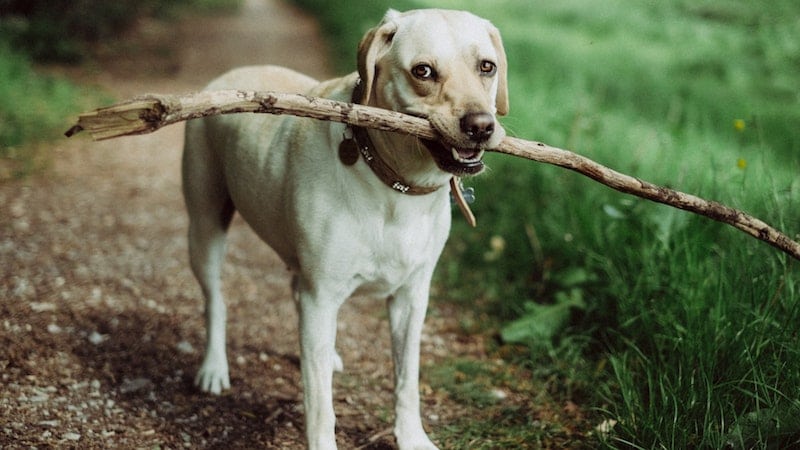
Warning Signs to Look For
Signs that your dog isn’t getting proper nutrition include:
- Dandruff
- Lack of appetite
- Vomiting
- Sluggishness
- and Excessive drinking
There are many other symptoms of an improper diet. If you notice your dog doing anything out of the ordinary or looking less healthy, get to the bottom of the problem and choose a food that will help fix it.
Follow Feeding Instructions
Choosing the right food is all fine and dandy, but it won’t do your dog much good if you feed them incorrectly. Each dog food will have its own instructions for proper feeding. Make sure you follow them correctly.
Highly nutritious foods can cause problems when they’re given in too large quantities. Avoid canine obesity by avoiding over-feeding.
Feeding your dog less can cause problems, too. Carefully read the instructions on the dog food package. Make sure you feed your dog the right amount, whether you feed him once or multiple times per day.
Watch What They Eat
Keep an eye out for bad eating habits. If your dog gobbles up all the food you put down, don’t leave food in his bowl all the time. Keep food out of reach when it isn’t time to eat or train your dog to eat in moderation.
Don’t Forget Water
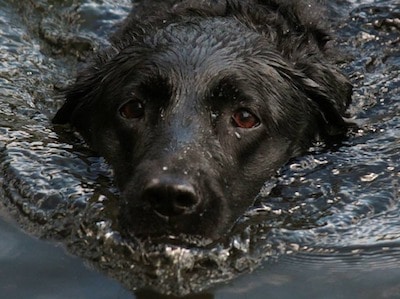
Water is just as important as food when it comes to your canine’s health, so don’t forget to pay attention! Avoid dehydration by providing plenty of water for your dog, both indoors and outdoors, or wherever your dog spends his time. Keeping your dog’s water fresh is important too. If water has sat for a while, change it out to ensure your dog drinks water that is clean.
Making a Switch? Do it Right
Are you considering switching to what food your dog eats? If so, make sure you do it properly. Giving your dog new food without notice can cause digestive issues.
Gradually change your dog’s food by mixing his current and new foods together for a few weeks. Start with more of the current food, then gradually change the ratios until your dog is entirely eating the new food. Proper food transitioning provides a better experience for your dog and for you.
